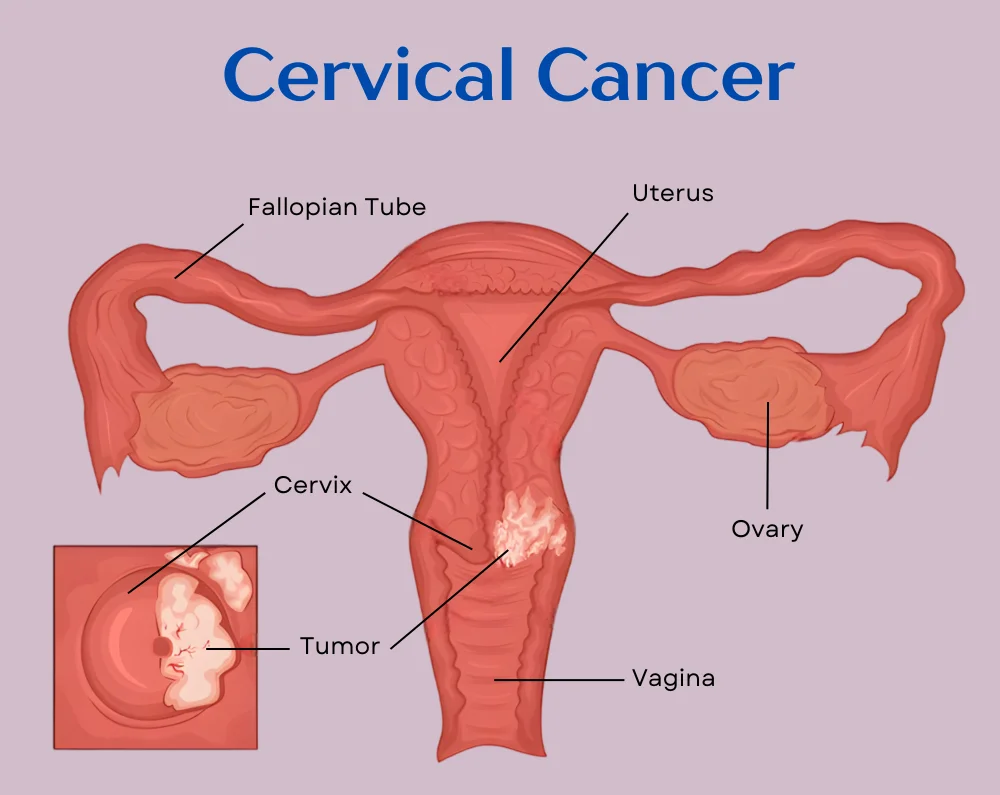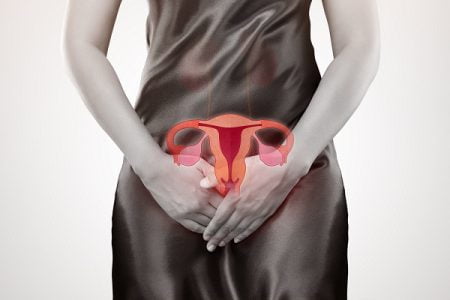Can You Die From Cervical Cancer?
- Updated on: Aug 8, 2024
- 4 min Read
- Published on Aug 13, 2018


What is cervical cancer?
Cervical cancer is observed to be the second most commonly found type of cancer which affects women (each year) after breast cancer. It generally begins with human papillomavirus (HPV) infection as the virus causes certain changes in the cells of the cervix. When the infection becomes too severe, it can lead to HPV deaths.
HPV is a virus which can cause genital warts and pre-cancerous lesions that lead to the formation of tumors (abnormal cell growth) and can ultimately result in cancer development. HPV is a sexually transmitted infection which is quite common in middle-aged men and women.
In the United States and the UK, cervical cancer is considered to be one of the most common cancers diagnosed every year. About 3200 cases of cervical cancer are found in the United Kingdom (per annum) in which approximately 1,000 women die every year. Certain studies suggest that the ratio of cervical cancer deaths worldwide is one in about every 123 women who suffer with cervical cancer. Cervical cancer mortality rate also indicates that about 85% of the total deaths due to it occurs in the developing or under-developed countries or in countries with low and middle income group families.
It is often observed that, in the United States, hispanic women have more chances of suffering with cervical cancer, followed by African-Americans, Asians and Pacific Islanders, and whites. American Indians and Alaskan natives are supposed to be at the lowest risk of cervical cancer in the United States. According to a small study by some researchers at Johns Hopkins University, it was also observed that the death rate from cervical cancer in the US is slowly increasing, especially among African-American women and older women.
After several researches and studies, the statistics related to cervical cancer provide a brief idea about how the death rate due to cervical cancer can be brought down. But, the number of women dying from cervical cancer symptoms worldwide is still high due to ignorance or unproductive treatments.
Read about: Cervical Cancer – Overview, Types, Causes
Read about: Human Papillomavirus (HPV) Vaccination for Prevention of Cervical Cancer in Women

Cervical cancer metastasis
Metastasis is the common pathway for deaths due to cervical cancer. It can take about 10 to 12 years for cervical cancer cells to fully spread in the body. During early cervical cancer stages, pre-cancerous cells are detected with the help of screening through Pap smear test or HPV test. As the pre-cancerous cells become cancerous (cervical cancer cells), the chances of treatment to be effective becomes low.
When cervical cancer is detected in later stages, the chances of survival are relatively low, and consequently the number of deaths due to cervical cancer is much higher and the metastasis rate also increases tremendously as the cells start spreading to nearby organs and to other parts of the body in its later stages. At this time, the chances of surviving cervical cancer are very low and often women who are fighting the disease cannot survive long.
Cervical cancer prognosis
The cervical cancer prognosis or chances of recovery generally depends on factors such as the stage of the cancer (either the cancer affects a part of cervix, or whole cervix or the cancer has metastasized to the nearby lymph nodes or other parts in the body) and this indirectly also depends on the size of the tumor. In most of the cervical cancer cases, the approximate age of occurrence or diagnosis of the cervical cancer is about 35 to 44 in women. Only about 12% of cervical cancers in women are detected after age 65. In very few cases, women who are below age 20 are diagnosed with cervical cancer.
The answer to questions if you can die from cervical cancer depends on the stage at which the cancer is diagnosed. This indicates how far the cancer has spread and also shows the outlook of cervical cancer in women.
More: Early Detection, Prevention, and Screening of Cervical Cancer
Can cervical cancer kill you? Can you die from cervical cancer?
The chance of living with cervical cancer for a minimum of five years depends on the stage the cancer is diagnosed:
- at stage 1 – 79-99% approximately
- at stage 2 – 65-85% approximately
- at stage 3 – 33-55% approximately
- at stage 4 – 15% approximately
The outlook for cervical cancer might vary in different countries and the treatment is also less effective during the last stages. Screening with Pap smear test and treatment with radiation or chemotherapy are recommended in cervical cancer.
Researchers suggest that if an invasive cervical cancer in women is detected at a very initial stage, the chance of survival is about 90%. Out of this, approximately only 45% of women with cervical cancer are actually diagnosed during early stages. If the cervical cancer in women has spread to the surrounding tissues or organs and/or regional lymph nodes, the chances of survival are about 50%. If the cancer spreads to distant parts of the body, the survival rate is very low (about 15%).
Studies also suggest that cervical cancer patients can recover with proper treatment given on time, but the number of people dying from it is more as it cannot be detected in early stages in most cases. In another study, it was found that cervical cancer may not always be a cause of death but the death rate is higher than the cure rate due to weak and inefficient health system.
Women suffering with cervical cancer often wonder if they will die from cervical cancer soon and feel mournful about their situation. This in-turn might also create a negative psychological impact that weakens the chances of body to rejuvenate quickly. Proper treatment, healthy environment and great palliative care help women with cervical cancer to recover easily (if diagnosis is done at an early stage). Read about coping with cancer treatment.












